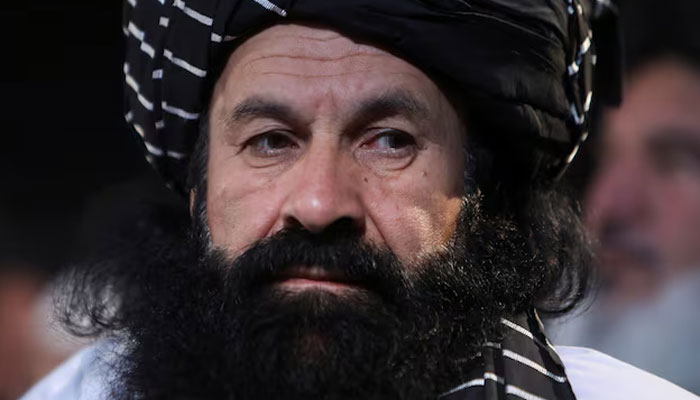Khalil Rahman Haqqani

PESHAWAR: Khalil Rahman Haqqani The Afghan Taliban’s acting minister for refugees, has been killed in a blast in the country’s capital Kabul, his nephew Anas Haqqani said on Wednesday.
Khalil Haqqani became a minister in the Taliban’s interim government after foreign forces withdrew from Afghanistan in 2021. He was a senior leader of the Haqqani network, a group blamed for major attacks during the 20-year war, according to the US State Department.
Khalil Rahman Haqqani was the brother of Jalaluddin Haqqani, who founded the feared Haqqani network. The deceased minister was also the uncle of Sirajuddin Haqqani, the current interior minister of Afghanistan.
The Haqqanis are said to be engaged in a struggle for influence within the Taliban authorities. According to press reports, they are pitted as a pragmatic faction up against supporters of the severe interpretation of Islamic law in line with the Taliban´s supreme leader based in Kandahar.
Several senior Taliban leaders have been killed since their return to power, including provincial governors, commanders and religious clerics, mostly in attacks claimed by Daesh.
Violence has waned in Afghanistan since the Taliban forces took over the country in 2021, ending their war against the United States and Nato-led foreign forces.
“We lost a very brave Mujahid,” Anas Haqqani told Reuters, using the Taliban’s term for its fighters for Khalil Rahman Haqqani, meaning a holy warrior. “We will never forget him and his sacrifice.”
It was not immediately clear who was behind the blast.
The Taliban took over Afghanistan in 2021 as foreign forces withdrew, vowing to restore security, but attacks have continued in urban areas.
In 2022, a blast took place near the interior ministry, led by Haqqani network leader Sirajuddin Haqqani, killing four people. In 2023, Daesh claimed an attack outside the Taliban-run foreign ministry that killed at least five.
The US Treasury classified Khalil Rahman Haqqani as a “Specially Designated Global Terrorist” in 2011 and the State Department offered a $5 million reward for information leading to his arrest.